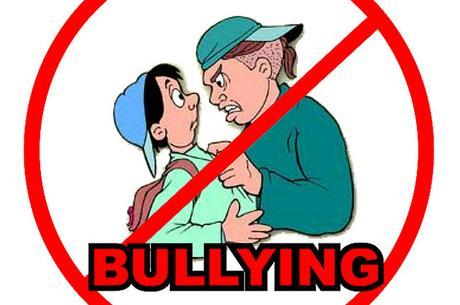
In today's connected and internet-dependent world, it's no longer a question of whether your children should or shouldn't have a mobile device at school. Reality is that they do, and in ever-increasing numbers. By the time they reach middle school (6th through 8th grade), 83% have a phone and 53% have internet access. And they're spending an average of six hours every day glued to it.
Considering that in 2000, virtually no children of that age had their own phone, that's a dramatic social and cultural change. It's added a new challenge to parenting, particularly when children are out of direct parental supervision at school. Obviously, you want your kids to have all the advantages possible to help them learn and grow. But there is a growing number of dangers posed by internet and social media access. How does one balance the benefit with the need to protect them? Here's a look at some of the issues, and some possible solutions, to managing mobile devices, kids, and school.
The Shocking Truth About Kids and The Internet
Children, especially younger children, are very impressionable. They're forming habits and world views that will affect if not define much of the rest of their lives. So it's critical that, as a parent, you're aware of the risks to kids having internet access through smartphones, tablets, and laptops. Keep in mind that many of these risks are far more relevant to a child than a mature adult. So don't be too hasty in dismissing what might seem trivial to you from an adult perspective. Consider just these three major concerns:
Social Media
Much of the time spent online by adolescent and pre-adolescent children is on various social media. Remember, children are at a stage when social acceptance is a top need and priority. So from their perspective, more is better. That's why it's so common so find that they have hundreds, sometimes even thousands, of "friends." With that comes the need to connect and interact. But how can that kind of social activity be bad, you may be asking.
As Victoria Dunckley M.D. points out in a Psychology Today article, here's why:
- Social media was not designed for them. While you start teaching responsible use of tech now, know that you will not be able to teach the maturity that social media requires.
- Social media is an entertainment technology. It does not make your child smarter or more prepared for real life or a future job; nor is it necessary for healthy social development. It is pure entertainment attached to a marketing platform.
- A tween's "more is better" mentality is a dangerous match for social media. Social media allows (and encourages) them to overdo their friend connections like they tend to overdo other things in their lives.
- Social media is an addictive form of screen entertainment. And, like video game addiction, early use can set up future addiction patterns and habits.
- Social media replaces learning the hard social "work" of dealing face-to-face with peers, a skill that they will need to practice to be successful in real life.
- Social media can cause teens to lose connection with family and instead view "friends" as their foundation. While they need attachments to their friends, they need healthy family attachment more.
- Social media use represents lost potential for teens. It is easy for teens to waste too much of their time and too much of their brain in a digital world.
Cyber Bullying
With their tendency to spend all that time on social media, it's no surprise that the risk of becoming the victim of cyberbulling very real. Chances are that when you were a kid, your exposure to bullying was quite modest compared to today's childhood experience. Doubt it? Here's the startling facts, as reported by NoBullying.com:
- 25 per cent of teenagers report that they have experienced repeated bullying by their cell phone, or on the Internet.
- 52 per cent of young people report being cyber bullied.
- 11 per cent of adolescents and teens report that embarrassing or damaging photographs have been taken of them without their knowledge or consent.
- Of the young people who reported cyberbullying incidents against them, a third reported that their bullies used online threats.
- 10 per cent of all middle school and high school students have been on the receiving end of hate terms.
- 55 per cent of all teens that use social media have witnessed outright bullying online.
- 95 per cent of teens that witnessed bullying on social media report that others, like them, have ignored the behaviour.
It's always been a challenge to monitor bullying, which almost always occurs out of parental view. And while teachers have always tried, with the advent of the internet and the widespread use of mobile connectivity by children, it's now much more difficult.

General Security Concerns
Kids are invincible. You knew that, right? So they give little thought to the possible consequences of downloading that cool new app, visiting an interesting website, or even accepting a new connection with a complete stranger. Childhood innocence is just as real as it ever was, but now there are many more potential violations of that innocence.
The most common result is one you've probably already experienced yourself: malware and spyware. Those invasions of your digital privacy that can be as innocuous as annoying ad pop-ups on the screen to stealing your personal and financial information, spying on you, or even hijacking your device until a fee is paid to "repair" it.
While it's still the norm for kids to think they're smarter than their parents, it's also true that kids in general are far too trusting and gullible. What you, as an adult, might easily recognize as a red flag they are likely to miss. And again, when the child and their device is out of your direct supervision, the risk increases exponentially.
How To Manage Mobile Devices, Kids, and School
Hopefully, what you've read so far has set off your good parenting alarm. Now, it's time to evaluate what you have, and haven't, been doing to keep your kids safe. Here's what you should be doing going forward.
- Keep up with what's going on. Twenty years ago, our parents put a block on the adult cable channels. They knew what was on them and knew which channels we ought not be watching. Now, we need to know the names of the popular, and new, apps that are constantly in use by kids. Do you know what Snapchat and Facetime are? You need to.
- Communicate. Keep an open dialogue about what they're doing online, what engaging them. If you do this from an "I'm interested" come from, as opposed to an authoritative approach, you're likely to have greater success. Let them feel like they are teaching you, and you'll both win.
- Discuss and use appropriate tools and controls. There are a variety of ways to control access, both on the device and in cloud security. Learn and use them. Some of these you might want to openly discuss with the child, and some you may want to put in place as monitoring tools that help you maintain oversight.
What A Good Tool Looks Like
One example of a good quality tool we've found is Kaspersky. You'll find a full review of it here, from ParentZone.org. In short, it addresses virtually all of the issues outlined. But here's an even dozen reasons why I think it's great:
- Can be used with smartphones, tablets, Mac and PC
- For multiple devices
- For families and individuals
- Protects against Trojans, worms and phishing and lots more
- Makes connecting to public WiFi safer by stopping your messages from falling into the wrong hands and keeping your passwords and personal contact and payment card details locked in a secure vault.
- Records search history.
- Automatically alerts you about suspicious malware and whether it has been eliminated
- Parents can create multiple accounts for their children and adjust the settings accordingly to control what they access on which device and how long they can spend on a device or online.
- Can also create alerts and be informed about a child's internet usage e.g. when a child has opened a page that is potentially inappropriate.
- Parents can also identify the location of a device (if that feature is switched on).
- The app will also warn a parent if a child tries to disable the app.
- Advice for parents is built into the app to help them help their children learn and understand why some content isn't appropriate.
Parenting today includes the responsibility to keep our children safe online, and to teach them the basics of living safely in a digital world. More than anything, keep the channels of communication open. If you'd like to read more about kids and mobile device safety, I'd recommend this guide published by the U.K. Department For Digital, Culture-Media, and Sport

I'm a serial entrepreneur, with a resume that makes me look like a Jane of all trades. Pretty sure we are all reluctant Messiahs, travelling through life planting seeds where ever we can. Hopefully, most of mine have been good ones! MA from Miami University (Ohio, not Florida), BA from Cal State.

